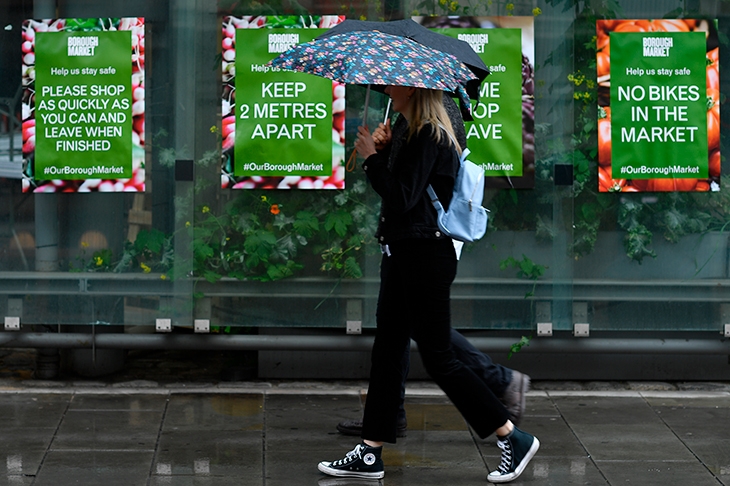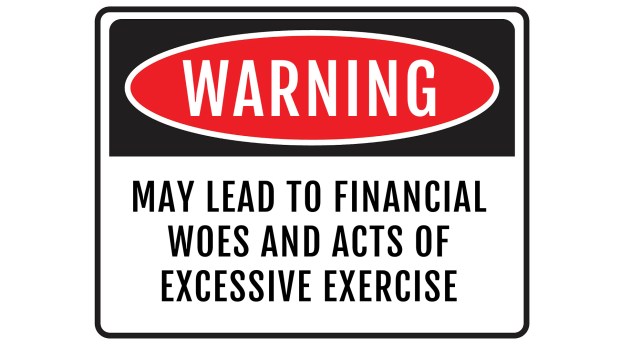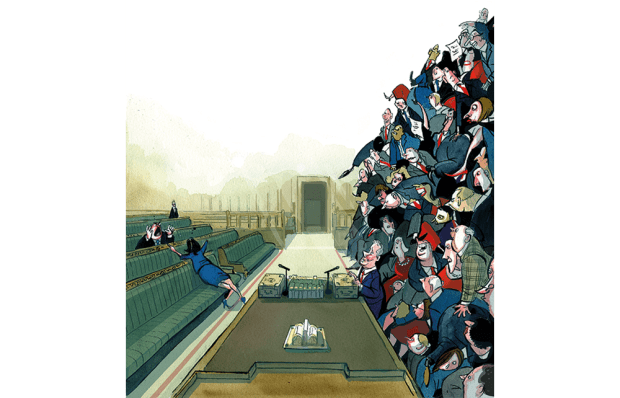Lockdown damage
Sir: I am sick and tired of people taking the moral high ground and looking down on ‘lockdown sceptics’ like me as if we don’t care. It’s ironic, because while there is no clear evidence to date that national lockdowns actually save more lives (contra the interview with Matt Hancock, 9 January), there is plenty of evidence that lockdowns ruin lives.
If anyone should take the moral high ground it is those, like myself, who witness this ‘collateral damage’ on a daily basis. Yes, the health issues are complex. And who would want to govern at this time? But when you know that your chosen strategy will result in avoidable deaths, such as those from cancer, it seems obvious that it is not an option that should even be considered — certainly not for the length of time it has been. At the very least there ought to be an ‘effortful pause’ so that we can debate this properly. One gets the disturbing feeling that we are being governed by mantras rather than by wisdom.
The Revd Dr Ian Stackhouse
Guildford, Surrey
Going, going, gong
Sir: Andrew Knight argues that no journalist should ever ‘carry a title or wear a gong’ (‘Honour bound’, 9 January). Ralph Blumenfeld, editor of the Daily Express between 1902 and 1929, clearly agreed. After the general election of 1922, Blumenfeld was offered a knighthood in recognition of his newspaper’s role in bringing down Lloyd George’s coalition. Blumenfeld declined the honour, and asked whether he might instead be granted membership of the Carlton Club. As an American Jew, Blumenfeld recognised that this was a more reliable indicator of acceptance by the British establishment.
The Revd Sam Aldred
Swansea, West Glamorgan
A pinch of salt?
Sir: Working in the nuclear industry, I was surprised at Tim Ambler’s claim (Letters, 9 January) that molten salt reactors are already operating in Canada; I can find no source that corroborates this. Molten salt reactors and other small modular reactor designs — which have their own section in the government’s ten-point plan — may be a useful addition to the energy mix in years to come, but most are at the prototype stage and would take many years to be approved by the nuclear regulator before they could start construction in the UK. The reality is that for a long-term strategy of stable electricity supply at a half-decent price, we need a mix of nuclear for day and night baseline electricity which will be best provided by Hinkley Point C and Sizewell C, natural gas to meet the daily peak demand when we turn on the oven for tea, and renewables to fill the gaps if we are to meet carbon targets.
Jamie Steel
Paris
Shear luck
Sir: Robert Walls (Letters, 9 January) suggests all products sold in the UK should clearly state the country of manufacture on the packaging. A slight difficulty is that many goods include components sourced from different countries. Anyway, rather than another regulation being introduced, could nimble entrepreneurs not do the job? Already, many proudly announce that their materials come from sustainably managed forests or are gluten-free, etc. Some months ago, having failed with searching for ‘garden shears not made in China’, I googled ‘garden shears made in Taiwan’ and found a suitable model. However, the manufacturer emailed to advise me against buying their product, as they had no distributor in Britain and the price would be exorbitant. Perhaps there is a niche market of would-be China boycotters waiting to be exploited?
Jonathan Coles
Great Clifton, Cumbria
Bah Humboldt!
Sir: Many readers will have groaned on reading of Tristram Hunt’s new Humboldt-inspired vision for the V&A, which is modelled on Berlin’s Humboldt-inspired ‘Enlightenment project’ (Arts, 9 January). Notions of ‘nurturing global citizenship’ and combating mindsets shaped by a ‘Eurocentric Enlightenment hierarchy’ signal all too clearly what is in store.
Yet few perhaps realise that the ‘Humboldtian’ model of self-learning fits like a glove into the contemporary ideology of deconstruction and multi-culture. For Humboldt, Bildung (self-formation) did not involve initiation into a cultural inheritance, or a political and moral community, but a free-spirited individual encounter with the totality of the world’s cultures and traditions. He was, as J.W. Burrow put it, a ‘cultural connoisseur’ abroad in ‘the moral museum of the world’s history’. Much better to stick with Michael Oakeshott, the great conservative philosopher, for whom a liberal education was an ‘orderly initiation’ into a cultural inheritance — and that meant our cultural inheritance.
Alistair Miller
Sunbury, Surrey
Holier than thou
Sir: James Hickman (Letters, 9 January) arrives at the wrong conclusion on the egalitarian nature of the English as revealed by their use of language. The adoption of the previously formal ‘you’ in place of ‘thou’ for all should be seen as an early example of levelling up. He does, however, note the failure of the virtue-signalling by the Quakers: hopefully a sign for our times too.
Melvyn Pound
North Newton, Somerset
Top of the egg
Sir: As a mathematician, I enjoyed the terminological correctives from Dot Wordsworth (Mind your language, 9 January). However, I feel compelled to correct her on one point. The cap of a boiled egg is an ovoid cap, not a spherical one.
James McMeehan Roberts
By email
Got something to add? Join the discussion and comment below.
Get 10 issues for just $10
Subscribe to The Spectator Australia today for the next 10 magazine issues, plus full online access, for just $10.
You might disagree with half of it, but you’ll enjoy reading all of it. Try your first month for free, then just $2 a week for the remainder of your first year.














Comments
Don't miss out
Join the conversation with other Spectator Australia readers. Subscribe to leave a comment.
SUBSCRIBEAlready a subscriber? Log in